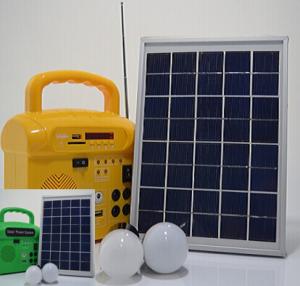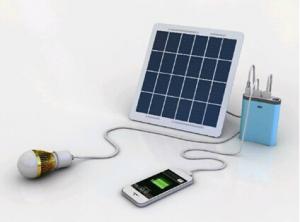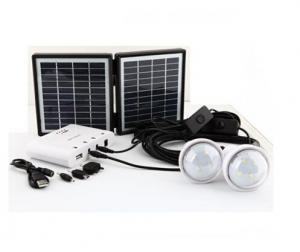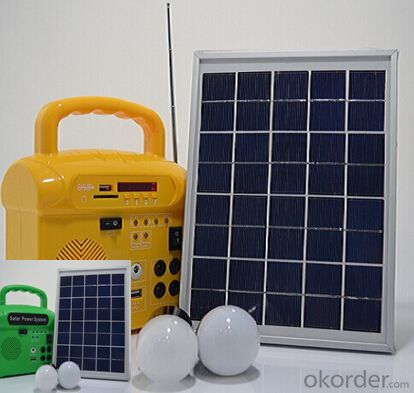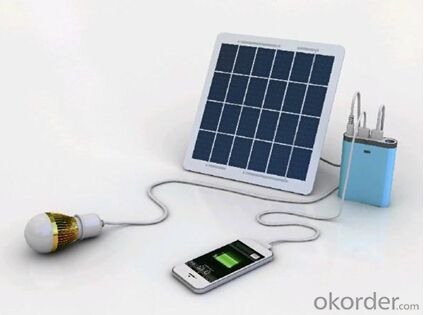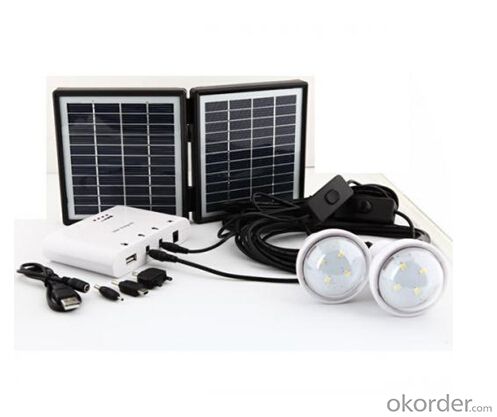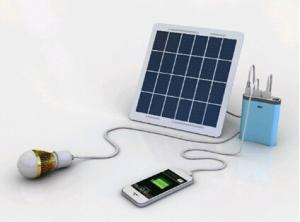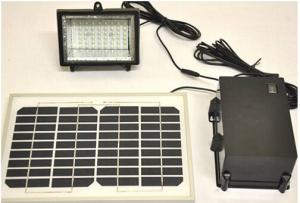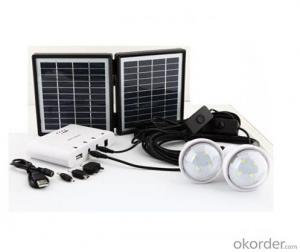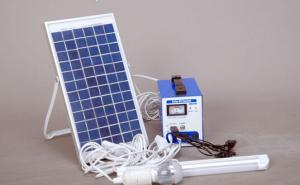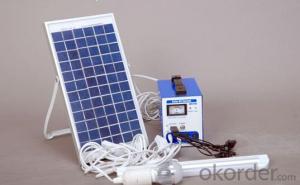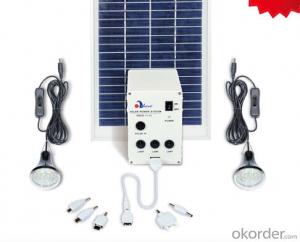German Solar Energy Systems CNBM Solar Home System Roof System Capacity-40W
- Loading Port:
- China Main Port
- Payment Terms:
- TT or LC
- Min Order Qty:
- 500 set
- Supply Capability:
- 10000 set/month
OKorder Service Pledge
OKorder Financial Service
You Might Also Like
Introduction of our company
We are the first solar racking system developer in China, who committed to solar racking system R&D, producing and marketing for about 10 years. We were the OEM for Sunpower, and are one of the largest rooftop solar racking system supplier in Japan and Australia now.
We are persisting the path of specialization, scale and internationalization development. We have been imported the international advanced technology equipment for manufacturing , assembling and testing. Frontier solar racking system is with own patents. The dynamic wind resistance reliability of our racking system can up to 270km/h. Therefore, superior product quality with more than 25 years' durability and perfect after-sale service have earned us a high reputation in PV industry worldwide.
Working Principle of Solar Roof System
The stand alone Solar Home System is an off-grid solar system which uses batteries to store the solar energy. Stand alone solar system solutions design for those who are not able or willing to connect to electricity grid.
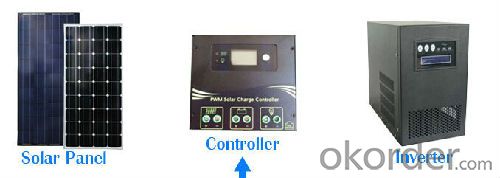
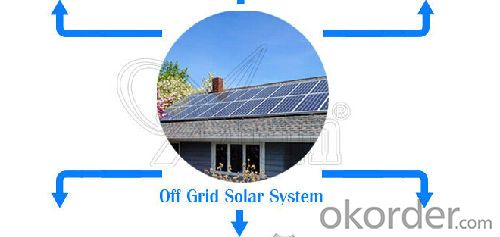

Specification of Solar Home System
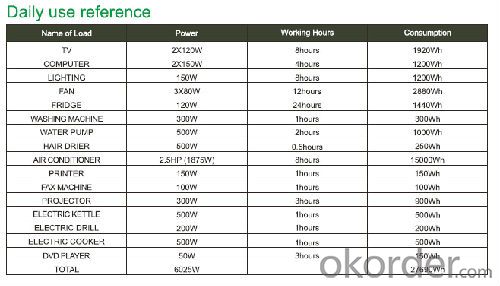
Product Features of Solar Home System
Off grid solar power system is mainly used for application with relatively-small power consumption, and the areas have no grid network coverage, or grid power is unstable or outage condition.
It’s composed of solar panels, hybrid solar inverter, battery bank, solar panel mounting racks, and other accessories required fora complete home solar power system.
The battery bank gives a stable power output to the solar inverter which converts DC to AC to power loads, and provides power backup in rainy or cloudy days.
The solar panels generate electricity at daytime and charge the battery bank.
The off grid home solar power system provides grid power bypass in case of battery power shortage when sunshine is not enough.
All the off grid home solar power system configurations are worked out by scientific calculation and design.
Advantage of Our Solar Home System
1. solar power system operation can automatically control and manual control modes.
2. Easy installation, energy saving (saving coal and petroleum resources, reduce pollution / noise emissions); do not need to lay long-distance transmission lines, do not build large substation, system stability, less maintenance, low maintenance cost, daily / each month / year electricity clearly visible, and can be entered into the computer record.
This solar system configuration is for reference. It can be adjusted based on actual condition and requirement. All parts have been tested and proven in actual operation with enough reliability and stability. It’s suggested to source whole system as a pack from us to guarantee the system compatibility.
Terms and Conditions
1. Trade terms: FOB Shanghai
2. Payment terms: 30% T/T, balanced before shipment/ LC at sight before shipment. Actual Terms can be negotiated for big order.
3. Package: Exported standard package suitable for tough handling and sea transport.
4. Delivery: Goods to be ready within 10~30 days depending on order quantity.
5. Warranty: 10 years for solar panel, 2 years for controller/inverter/battery.
FAQ
Q1.Are you a factory or trading company?
We have 6000 sqm modern factory, with 5 production lines. We have 120 factory workers and 10 of them are quality control and engineer guys. Welcome to visit our factory.
Q2. Is Your products the lowest price?
We Anern take the quality into consideration prior. The price is based on the quality level and the order quantity. We have different quality level products for buyers option and discount is available from us when the order is big.
Q3. All products have a warranty?
Yes, we supply 1 to 5 years warranty for our products. You will be satisfied with our quality.
Q4. What is the transportation?
By air, by Sea, by Express, by Train and Ttruck, all are ok to us.
Q5. If the goods in transit damage, how to do?
First of all, we will use stable packing, the possibility of the goods damaged during the shipping is low. If the goods is damaged during shipping, and we covered the insurance, we will claim the insurance company and let them cover the loss. If there is no insurance cover, we will claim the shipping company and some times, we cover the loss of the goods for client.
Q6. Can we design packaging?
Yes, but there is with quantity limitation. For 10,000 pcs, we will make the packing free for the client, and if less than 10,000 pcs, we can talk, the package is free or little money will be charged.
- Q: How does the efficiency of solar panels vary with different weather conditions?
- The efficiency of solar panels can vary significantly depending on the weather conditions. Solar panels convert sunlight into electricity, and therefore, their efficiency is directly affected by the amount of sunlight they receive. On a clear and sunny day, solar panels operate at their peak efficiency since they receive the maximum amount of sunlight. The direct sunlight allows for optimal conversion of solar energy into electricity, resulting in higher efficiency. However, during cloudy or overcast days, the efficiency of solar panels decreases. This is because clouds block a significant portion of the sunlight, reducing the amount of energy available for conversion. While solar panels can still generate electricity under cloudy conditions, their efficiency is considerably lower compared to sunny days. Temperature is another weather factor that affects solar panel efficiency. Contrary to popular belief, solar panels actually work more efficiently in cooler temperatures. As the temperature increases, the performance of solar cells decreases due to a phenomenon called the temperature coefficient. High temperatures reduce the voltage output of solar panels, leading to lower efficiency. Rain or snowfall can also impact the efficiency of solar panels, although the effect is relatively minimal. Rain can temporarily decrease the efficiency by reducing the amount of sunlight reaching the panels, but once the rain stops, they return to their normal efficiency. Snow, on the other hand, can cover the panels and prevent sunlight from reaching them, resulting in a temporary loss of efficiency until the snow is cleared. In summary, the efficiency of solar panels varies with different weather conditions. Clear and sunny days provide optimal conditions for maximum efficiency, while cloudy or overcast days result in decreased efficiency. Temperature fluctuations can also impact the performance of solar panels, with higher temperatures leading to lower efficiency. Rain and snow can temporarily reduce efficiency, but their overall impact is relatively minor.
- Q: Can solar energy systems be used in powering community centers or social organizations?
- Yes, solar energy systems can definitely be used in powering community centers or social organizations. Solar energy is a clean and renewable source of power that can provide electricity for various purposes, including lighting, heating, and running electrical appliances. Community centers and social organizations often require a significant amount of electricity to cater to the needs of their members or visitors. By installing solar panels on their rooftops or in nearby open spaces, these organizations can generate their own electricity and reduce their dependence on the traditional power grid. One of the key advantages of using solar energy systems is the cost savings they offer in the long run. While the initial installation costs may be higher compared to conventional power sources, solar panels have a lifespan of 25-30 years and require minimal maintenance. This means that over time, the investment made in solar energy systems can be recovered through reduced electricity bills. Moreover, solar energy systems are environmentally friendly, as they produce zero greenhouse gas emissions during operation. By utilizing solar power, community centers and social organizations can contribute to mitigating climate change and reducing their carbon footprint. Solar energy systems can also provide a reliable source of electricity, especially in areas where power outages are common. By integrating battery storage systems, excess solar energy can be stored and used during periods of low or no sunlight, ensuring uninterrupted power supply to the community center or social organization. Furthermore, solar energy systems can be an educational tool for social organizations to raise awareness about renewable energy and sustainability. By demonstrating the benefits and feasibility of solar power, these organizations can inspire community members to consider adopting clean energy solutions in their own homes and businesses. In conclusion, solar energy systems are a viable and sustainable option for powering community centers or social organizations. They offer cost savings, environmental benefits, reliability, and educational opportunities. By embracing solar power, these organizations can lead by example and contribute to a more sustainable future.
- Q: Can solar energy systems be used in areas with limited access to solar energy warranties and guarantees?
- Yes, solar energy systems can still be used in areas with limited access to solar energy warranties and guarantees. While warranties and guarantees provide added assurance and protection, the viability of solar energy systems in such areas depends on factors like local climate conditions, available sunlight, and the efficiency of the system. Proper design, installation, and maintenance can help optimize energy production, making solar energy systems feasible even without extensive warranty coverage. Additionally, alternative financing options and community initiatives can help mitigate potential risks and barriers in areas with limited access to solar energy warranties and guarantees.
- Q: Are there any risks of electrical malfunction or failure with solar energy systems?
- Yes, there are some risks of electrical malfunction or failure with solar energy systems. These can include issues such as faulty wiring, damage to solar panels, or inverter failures. Additionally, extreme weather conditions like lightning strikes or power surges can also pose a risk. However, proper maintenance, regular inspections, and adherence to safety guidelines can help mitigate these risks and ensure the safe and efficient functioning of solar energy systems.
- Q: Can solar energy systems be used for powering communication systems?
- Yes, solar energy systems can be used to power communication systems. Solar panels can convert sunlight into electricity, which can then be utilized to operate various communication devices such as cell phones, radios, satellite phones, and even entire communication networks in remote areas. This makes solar energy an environmentally friendly and sustainable option for powering communication systems.
- Q: Can solar energy systems be used in areas with limited access to solar inverters?
- Yes, solar energy systems can be used in areas with limited access to solar inverters. In such cases, alternative solutions like micro-inverters or power optimizers can be employed to convert the DC power generated by solar panels into usable AC power without the need for a centralized inverter. These technologies enable more flexibility in system design and can be particularly useful in remote or off-grid locations with limited access to traditional solar inverters.
- Q: What is the impact of air pollution on the performance of solar panels?
- Air pollution can have a significant impact on the performance of solar panels. One of the main ways it affects solar panel performance is by reducing the amount of sunlight that reaches the panels. Air pollution, such as smog and particulate matter, can scatter and absorb sunlight, resulting in a decrease in the amount of solar energy that can be absorbed by solar panels. This reduces the overall efficiency and power output of the panels. Additionally, air pollution can deposit a layer of dust, dirt, and other pollutants on the surface of solar panels. This layer can block and absorb sunlight, further reducing the amount of energy that can be harvested. The accumulation of these pollutants also creates a barrier that hinders the transmission of sunlight to the solar cells, further decreasing the efficiency of the panels. Furthermore, air pollution can lead to the corrosion of the surfaces of solar panels. Pollutants, such as sulfur dioxide and nitrogen oxides, can react with moisture in the air to form acidic compounds. These compounds can gradually degrade the protective coatings on the panels and cause damage to the cells, reducing their performance and lifespan. Overall, the impact of air pollution on the performance of solar panels is significant. It decreases the amount of sunlight that can be harvested, reduces the efficiency and power output of the panels, and can lead to damage and degradation of the panels over time. Therefore, it is crucial to consider the effects of air pollution when designing and installing solar panels to ensure optimal performance and longevity.
- Q: Can solar energy systems be installed on roofs?
- Yes, solar energy systems can be installed on roofs. In fact, rooftops are one of the most common locations for solar panel installations, as they offer ample space and direct access to sunlight. This allows for efficient harnessing of solar energy to generate electricity or heat water.
- Q: How much do solar energy systems cost?
- The cost of solar energy systems can vary significantly depending on various factors such as the size of the system, location, quality of equipment, and installation costs. On average, residential solar energy systems can range from $10,000 to $30,000, but it's important to get a personalized quote from a reputable solar provider to get an accurate cost estimate for your specific needs.
- Q: Do solar energy systems require specialized cleaning?
- Yes, solar energy systems do require specialized cleaning. While solar panels are designed to be self-cleaning to some extent, they can still accumulate dirt, dust, pollen, bird droppings, and other debris over time, which can reduce their efficiency. Regular cleaning is necessary to ensure optimal performance. However, cleaning solar panels can be a delicate task, as they are made of sensitive materials. Using the wrong cleaning products or techniques can damage the panels and void their warranty. Therefore, it is recommended to hire professionals or follow the manufacturer's guidelines for cleaning solar energy systems.
Send your message to us
German Solar Energy Systems CNBM Solar Home System Roof System Capacity-40W
- Loading Port:
- China Main Port
- Payment Terms:
- TT or LC
- Min Order Qty:
- 500 set
- Supply Capability:
- 10000 set/month
OKorder Service Pledge
OKorder Financial Service
Similar products
Hot products
Hot Searches
Related keywords
